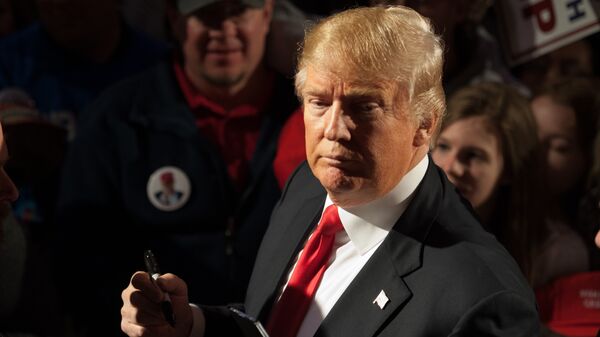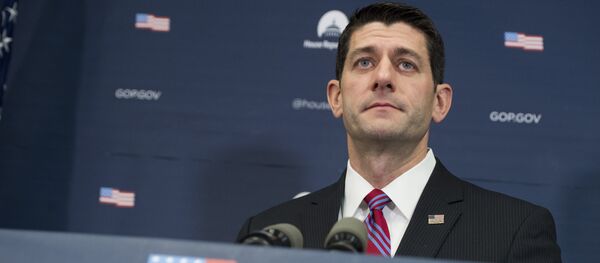WASHINGTON (Sputnik) — An additional but related factor cited by analysts is whether the Trump campaign manages to keep media coverage focused on a critique of US President Barack Obama’s eight years in office instead of Trump himself.
As the November election approaches, analysts anticipate a barrage of anti-Trump television ads featuring 30 second soundbites of the candidate’s more unorthodox proposals, such as a call to police and monitor Muslim-majority neighbourhoods or his pledge to extract confessions from terrorist suspects with waterboarding and more severe forms of torture.
“This campaign will be about risk tolerance,” Tennessee Middle State University Political Science Professor Kent Syler told Sputnik. “The Clinton campaign will be preaching that this guy [Trump] is too risky to put in the Oval Office.”
From day to day, we never know which Trump will show up, Syler added, noting that if Trump’s rhetoric is undisciplined, that plays into Clinton’s hand.
The schizophrenic nature of Trump’s rhetoric was on display on Tuesday, as voters in the state of Indiana cast ballots in a lopsided contest that later forced Trump’s remaining Republican rivals, Senator Ted Cruz and Governor John Kasich of the state of Ohio, to quit the race.
Although Trump stayed on message most of the day, at one point he appeared to lose control, claiming that Cruz’s father was somehow connected to the 1963 assassination of President John Kennedy.
The Kennedy remarks prompted Centerville University Director of Political Studies Mark Smith to question whether Trump is capable of controlling himself.
“If he could turn this on and turn it off, why would he have ever launched into that ridiculous attack on Ted Cruz’s father. It makes no sense at all,” Smith told Sputnik. “If he really is unable to control himself then I can’t imagine he could win a general election unless Mrs. Clinton gets indicted or something else happens.”
“We should at least consider one other possibility,” Smith suggested. “That there are enough angry people in the country who don’t care what he says about anything, but think that he is the solution to their problems, and their anger is going to drive them to vote for him no matter what.”
That is possible, he added, and Indiana might suggest that that is the case.
Indiana represented Cruz’s last chance to stop Trump. To do so, Cruz would have needed a victory to execute his strategy of forcing Republicans into a so-called open convention, in which delegates are not bound to any candidate and are free to vote for anyone.
Trump defeated Cruz by a margin of 53.3 percent to 36.7 percent.


